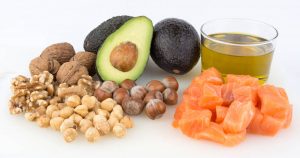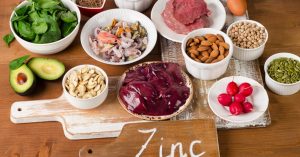We all know the rule. A vegetarian’s diet is basically plant-based which avoids products derived from the animals wherein most of the necessary nutrients are present. Based on science, the vegan diet offers an array of additional health benefits. For starters, this diet helps lose excess weight and maintain a healthy heart.
However, there is no such thing as a perfect diet. The benefits might be promising but if not taken into a serious planning it might become crucial to a person’s health. Thus, to help in preventing nutrient deficiencies, here are some of the key nutrients to keep an eye out for:
Vitamin B12
This nutrient is of special concern in a plant-based diet since it is naturally found only in animal-derived products. Vitamin B12 helps in maintaining healthy blood cells and makes DNA. As a result, this helps prevent a type of anaemia called megaloblastic anaemia which makes people tired and weak.
However, you do not need to worry. Vitamin B12 can be acquired through soy, seaweed, cereals, and fortified nutritional yeast which provides up to 88% of the RDI can replace lost intake. You could also take supplements to add to your intake.
Calcium
Calcium is the key nutrient to your bones. It is the most abundant mineral in your body which is essential for the bones and teeth. The heart, nerves, and blood-clotting systems also need calcium to work. This is commonly found in dairy products such as milk, cheese, and yoghurt.
Significant sources of calcium can be obtained from plant milk (soy, rice, almond, etc.), tofu, and almonds. Green leafy vegetables would be of help too such as broccoli, kale, mustard greens, spinach and rhubarb.
Omega-3 Fatty Acids (DHA)
Asides from the wonders they do in our body, omega-3 fatty acids are essential to normal growth and health. DHA (docosahexaenoic acid) particularly plays a key role in the development of eye and nerve tissues and is important for normal brain function and heart health. This nutrient is mostly found in marine animals such as mackerel, herring, tuna, halibut, salmon, and cod liver.
To recuperate the nutrient intake, try adding ground flaxseed, walnuts, canola oil, soy products, and hemp beverages into your diet plan.
Vitamin D
Vitamin D is commonly known as the “sunshine vitamin” but nowadays, many people might not get enough sun exposure to meet their needs. This nutrient is involved in the biochemical cellular machinery of all cells and tissues in your body. Unfortunately, a vegan diet is further at risk of having low vitamin D stores. The flesh of fatty fish (such as salmon, tuna, and mackerel) and fish liver oils are among the best sources for this type of nutrient.
The best way to cope up with the absence of the vitamin d, it is suggested for you to take dietary supplements or fortified foods with vitamin-D like some orange juices, breakfast cereals and mushrooms.
Zinc
One of the body’s essential minerals, zinc plays a vital role in immune functions and is needed for the proper growth and maintenance of the human body. Unfortunately, zinc from plant foods is not as easily absorbed as it is from animal products. It is naturally found in oysters which contain more zinc per serving than any other food. Also, red meat and poultry provide the majority of zinc in the American diet.
Zinc deficiency may lead to poor healing of wounds, immunological problems, and dermatitis. In order to prevent these illnesses from the lack of zinc in a vegan diet, one should consider adding legumes, nuts, seeds and whole grain bread where you can get it most. Additionally, certain cooking techniques can improve zinc absorption such as toasting nuts and seeds, sprouting legumes and grains and consuming more leavened grain products. In which an instant pot recipe might help you with to ease cooking time for a healthy diet.
Takeaway
A crucial diet as this that excludes animal products and their nutrients may result in several deficiencies. Any diet could lack nutrients if you don’t do careful planning and might harm you so it must be well-planned. It should help to do research or see a dietitian beforehand.















